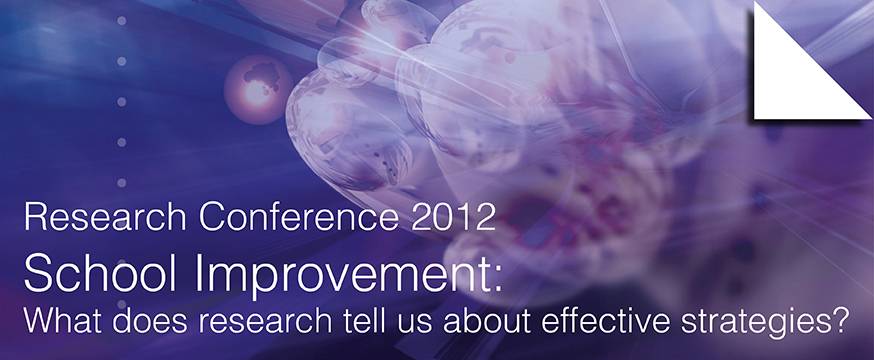
Personalising learning for school improvement
Research 27 Aug 2012 3 minute readMore than 1200 teachers, policymakers and researchers gathered in Sydney for the 17th annual ACER Research Conference. Addressing the theme 'School Improvement: What does the research tell us about effective strategies?' the conference covered not only what schools can do to improve outcomes for students but also how they can do it most effectively.
The conference featured four keynote addresses and 17 concurrent sessions. A number of these sessions addressed school improvement in terms of customised or personalised learning.
In his address to the conference, Professor Dinham from the University of Melbourne explained why educators need to take a clinical approach to teacher pre-service education, and why they need to ensure school leaders have a thorough grounding in instructional leadership for clinical teaching.
'Teachers have been told for decades that they need to cater for individual student differences and to 'personalise' learning yet, generally, have not been shown or taught how to do this,' Professor Dinham said.
ACER's Dr Michael Timms discussed a possible solution to this issue, presenting research on how computer technology can assist teachers in personalising learning for every student. Dr Timms reported on the development and trialling of simulation-based science assessments that monitor student learning against established instructional goals and produce informative reports to both the learner and teacher.
'Computer-based assessments can help teachers to provide differentiated instruction to meet the needs of diverse learners,' Dr Timms said.
Also at the conference, Professor Helen Timperley from the University of Auckland presented a model of inquiry that can be used to personalise learning for improved individual student outcomes, and can be used for whole-school improvement. In her address, Professor Timperley demonstrated why school improvement depends on building the professional capability of all those involved in the education system at all levels so that all, from policy makers to students, understand the part they need to play in the improvement effort.
The ACER Research Conference 2012, on the theme 'School Improvement: What does the research tell us about effective strategies?' was held in Sydney from 26 to 28 August.
Further information:
Full conference papers for each of the speakers are available from <research.acer.edu.au/research_conference/RC2012/>